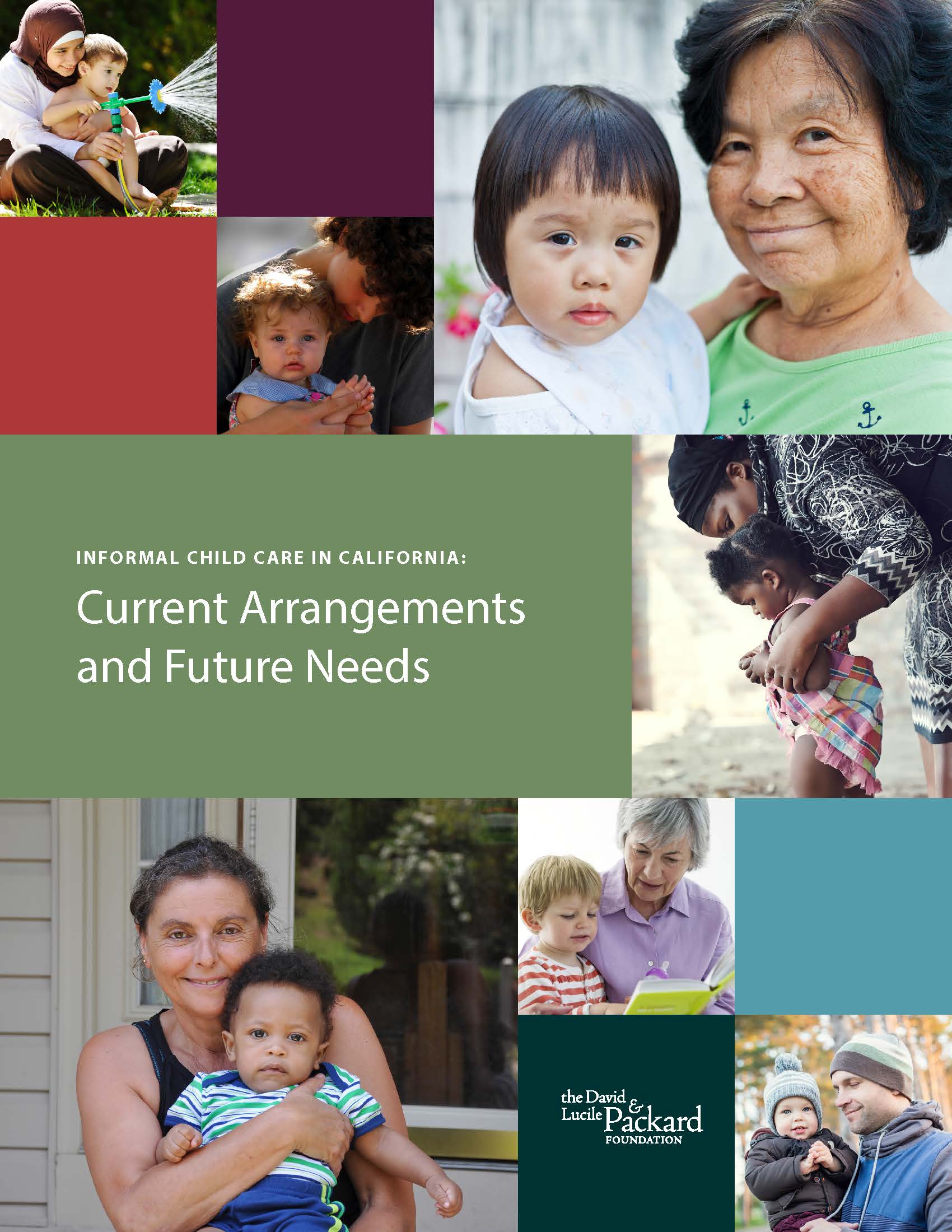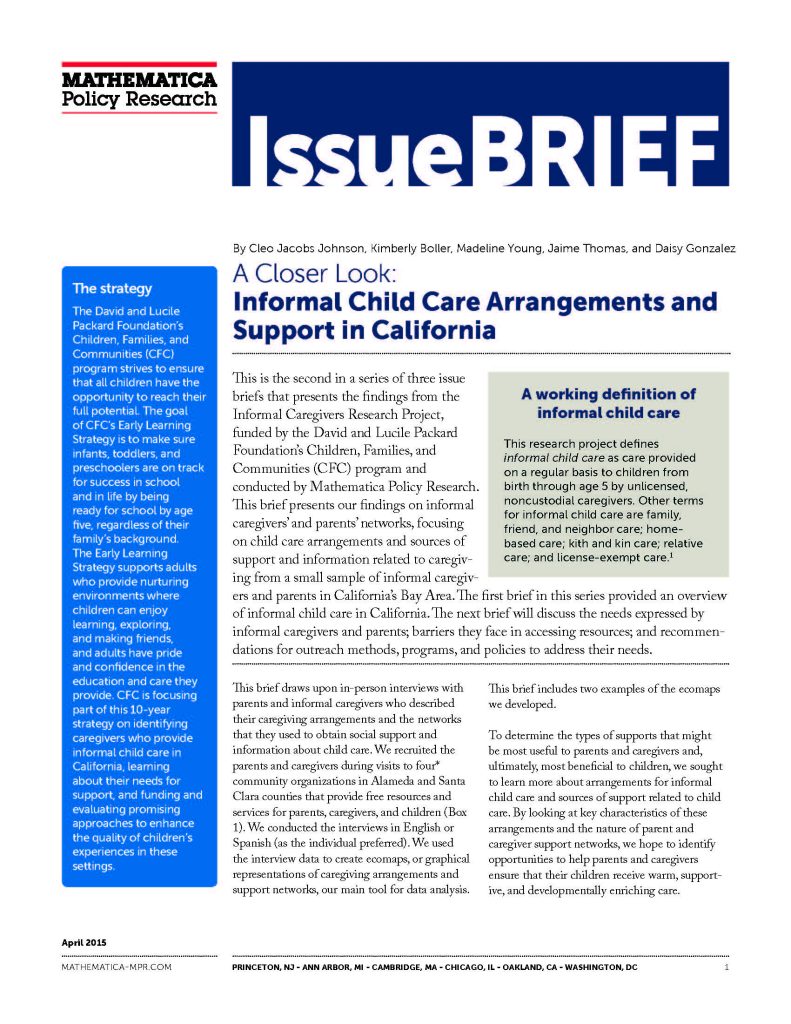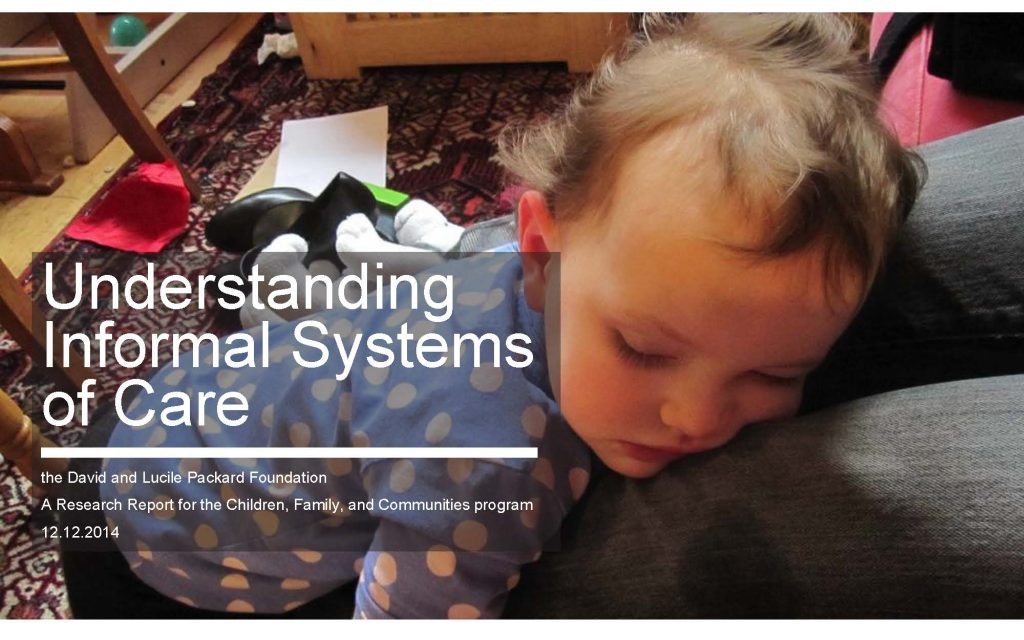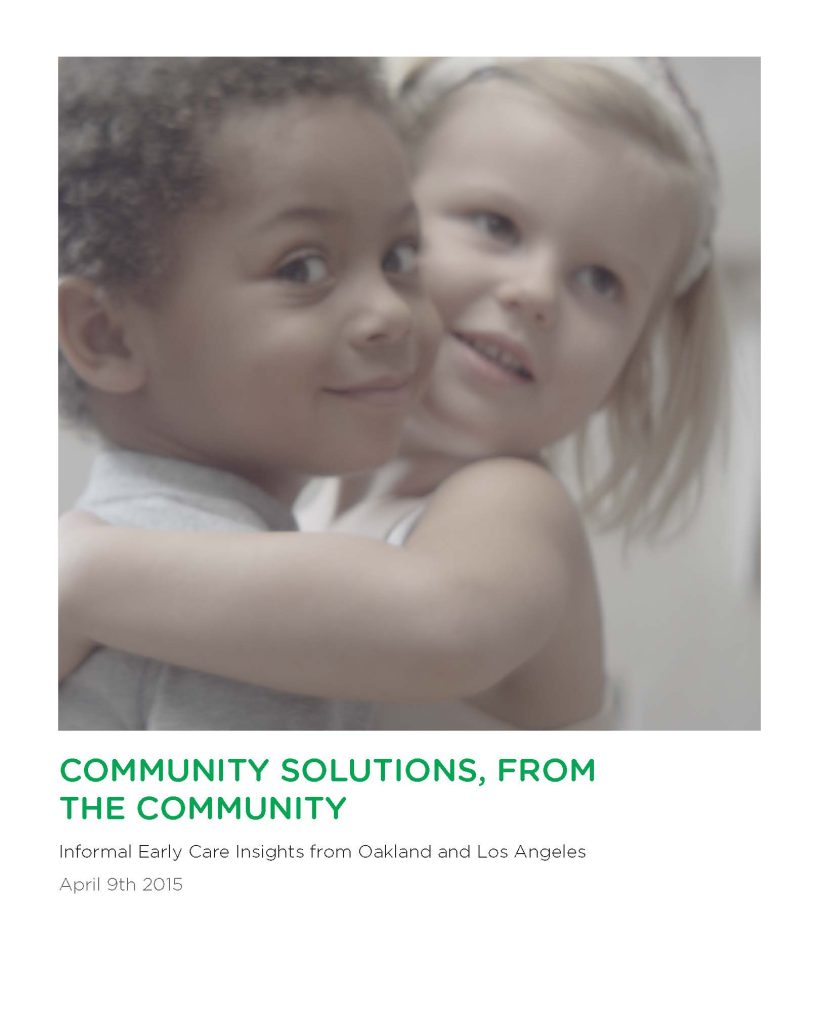The foundations for a lifetime of health and learning are built in the first five years of a child’s life and influenced by a diverse range of adults including parents, extended family members, friends, neighbors, and other informal caregivers. The Packard Foundation and our partners are working to give every child a strong start by empowering these adults to create healthy, engaging environments for children to grow and succeed. Our ultimate goal is for children to grow up healthy and be ready to succeed in school by age five.
We recently engaged three research teams—Mathematica Policy Research, Concept Hatchery, and FURTHER By Design—from different vantage points to help us understand what informal child care looks like in California and who is providing care, as well as the needs of the informal care community. The report, Informal Child Care in California: Current Arrangements and Future Needs, is a compilation of the findings from the three research projects, which broaden our understanding of caregivers’ motivations and experiences, and provides a more nuanced depiction of the adults who are caring for our youngest children. We will use the findings to test new approaches to providing support and resources to informal caregivers in California.






